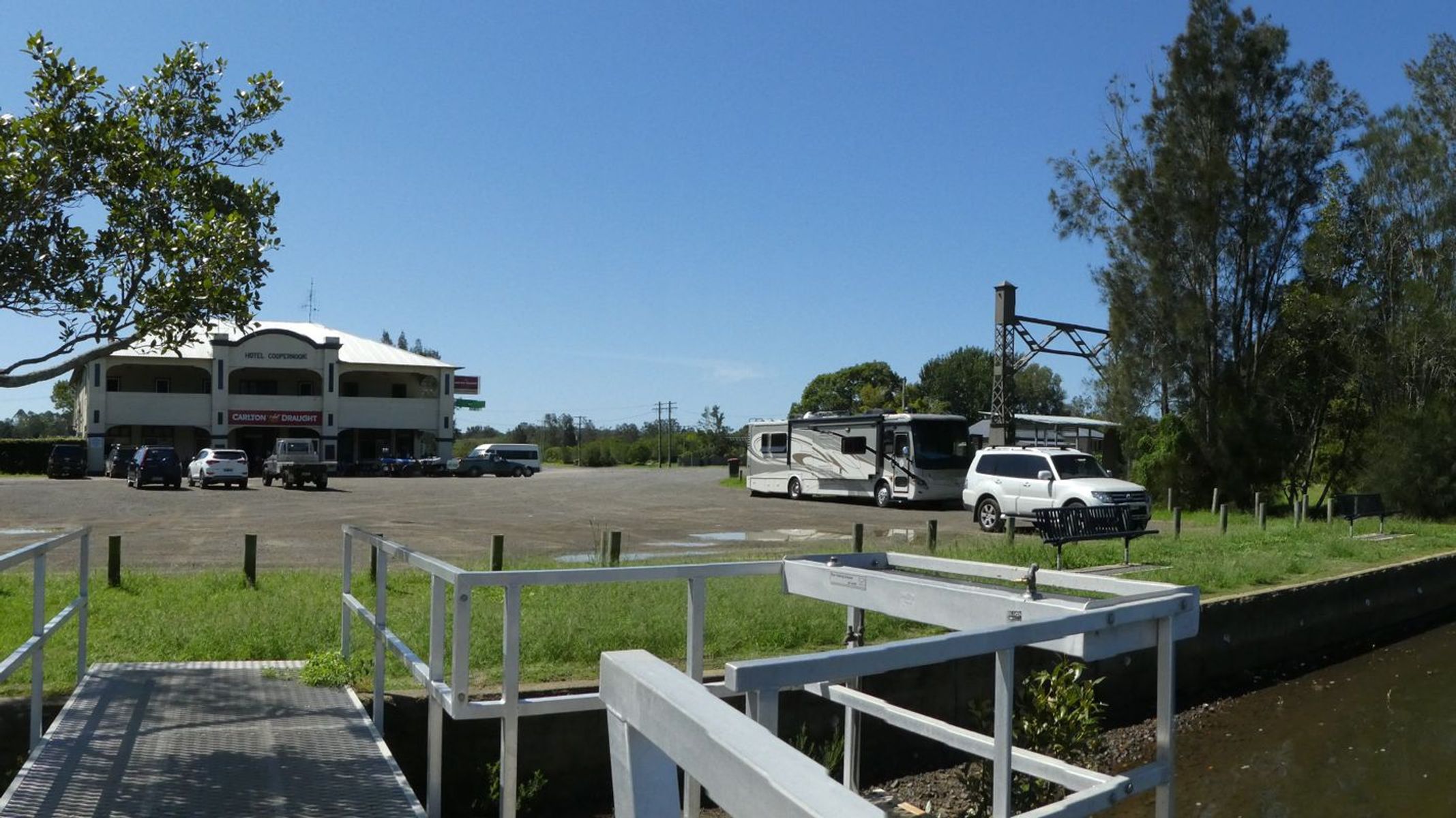
Located 24 kilometres north of Taree and 11 kilometres west of Harrington, you will find the quaint village of Coopernook.
Once situated right on the highway, Coopernook was bypassed several years ago and is now a safe quiet village popular with growing families.
Although not in use, the old iron bridge crossing the Lansdowne River still remains as a focal point and excellent fishing spot for the whole family to enjoy. The riverside park has BBQ facilities, a boat ramp and floating pontoon and is adjacent to the Coopernook Hotel.
The name, Coopernook, means "the elbow" in the local Biripi Aboriginal language. It refers to the bend in the Lansdowne River which looks like an elbow of an arm.
The village is serviced by a delightful Primary School, a general store, post office, take-away food outlet and petrol station. The Coopernook Hotel has a reputation for excellent meals and there is also a motel in the village. Property ranges from generous village blocks to larger parcels of farmland. Lots of timber slab homes still grace the village and are reminiscent of the days when the area was a hub of timber getting activity in the surrounding forests. Nowadays the surrounding forests are a favourite to explore, enjoy and get back to nature.
Coopernook State Forest is easy to negotiate with two wheel drive access in good weather. The HQ camping grounds are RV and Caravan friendly and the site is FREE to camp and pet friendly. This leafy, secluded spot is excellent to set up the tent or trailer and relax, or use as a base for day trips to explore the surrounding forest with drives, bushwalks and biking. The forests are full of eucalypt, hardwood, coachwood and bloodwood trees.
The State Forest is the gateway to Coorabakh National Park, which is significant to the Biripi Aboriginal people of the local area and takes its name from the meaning bloodwood.
A short distance from the village is the award winning Cattai Wetlands. A beautiful coastal wetland and hidden gem of the Manning Valley, it is a superb example of reclaimed and regenerated land. It provides a sanctuary for over 180 species of birds, including the threatened comb-crested jacana, and the jabiru or black-necked stork, as well as other native fauna, an abundance of plant species, and the endangered giant dragonfly. Make your way along one of the three walking tracks, take a picnic or relax and enjoy the scenery. The newly constructed bird hide allows visitors to get up close and personal to the birds without disturbing them, and includes viewing windows. It is an internationally recognised bird-watching hot-spot, but don’t forget the mossie repellent!
Close by and just along the highway you’ll find The Other Side Art Gallery & Café perched on the bank of Ghinni Ghinni Creek. A little something different in its delivery of atmosphere and service, it is a superb destination for a healthy and wholesome breakfast or lunch. Bring your pet and enjoy organic coffee while you watch an artist create a masterpiece in the working gallery. Selections of artworks are for sale and watch out for the next round of in-house art classes.
Ghinni Wines is a boutique winery on the banks of the Manning River and Ghinni Ghinni Creek. The Aboriginal name means the home of the mud crab, and the winery has adopted the mud crab as its logo. It specialises in fruit and vegetable wines and liqueurs using fresh on farm orchard fruit or sourced from other local growers, including organic specialists. Ghinni Wines also produce fruit and honey mead: blueberry, orange, plum and lemon.

